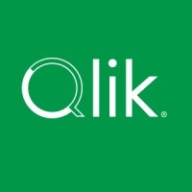


Find out what your peers are saying about Microsoft, Informatica, IBM and others in Data Integration.
It has helped us save a lot of time by automating repetitive data processes and reducing manual interventions.
We achieved around 20% to 30% time savings in the ETL process, reduced operational errors, and improved pipeline stability.
We actually achieved the first 18 months worth of work in the first six months.
I can get solutions quickly, and any tickets I submit to Oracle are responded to and resolved rapidly.
The technical support of Oracle is very good; they support the Oracle Data Integrator (ODI) solution effectively.
The support team is responsive when we raise issues, and they usually provide clear guidance or solutions.
I would rate the technical support from Talend Data Quality as an 8 or 9.
The customer support for Talend Data Integration is very good; whenever I raise a ticket in the customer portal, I immediately receive an email, and follow-up communication is prompt.
The technical support from TIBCO BusinessWorks is very good.
Customer service is very helpful.
I rate TIBCO technical support as fantastic on a scale of one to ten.
The scalability and the ability to handle multiple workloads of several parallel ETL jobs could use improvement.
By using features like job parallelization and modular design, we can expand our data flows without having to rebuild everything.
Its scalability is good, as Qlik Talend Cloud can handle large amounts of data and grow as needed, especially in cloud environments.
The scalability of Talend Data Integration is good; if it weren't scalable, it wouldn't be reliable.
It is not like AWS where I can add memory or more servers.
In terms of performance stability, I have not experienced any downtimes, crashes, or performance issues with the Oracle Data Integrator (ODI).
We have not encountered many issues with remote engines, and the interfaces are properly developed.
Once the jobs are properly designed and deployed, they run reliably without major issues.
It was not as stable when we were using TAC and on-premise systems, but currently, with Qlik Talend Cloud version 8.3 or 8.1, it is stable.
TIBCO BusinessWorks is quite stable and scales very well, so we are happy.
It is stable, however, every now and then, it just ends.
If I use a source system like Oracle and a target system like Teradata, ODI will still run, but it struggles a bit with different infrastructures.
It would be excellent not to have to go into different areas to perform different activities but rather have a user-defined interface where we can configure a job, run it, monitor it, link packages, and link subprocesses all in one frame.
On the flip side, that is one of its amazing strengths, as you are not locked into a very rigid way of doing something.
Better cost and resource visibility would help teams optimize their workloads.
It would be great to have more ready-to-use connectors for modern cloud and SaaS platforms.
AI-driven features in TIBCO BusinessWorks would be beneficial, so that our business tech BA can do the development rather than needing programmers.
The learning curve takes time compared to webMethods.
They should ensure that what was working in the previous version must also work in the new version of BW six.
ODI is cheaper compared to Informatica PowerCenter and IBM DataStage.
The pricing aspect of Oracle Data Integrator (ODI) is reasonable; it brings significant value to the table.
My experience with Talend Data Integration's pricing, setup cost, and licensing is that it is a bit higher compared to other tools, making it not very affordable.
The license cost has increased significantly, leading many companies to seek more profitable options in the market.
Pricing is for an enterprise application, so the company pays for it with a company license.
The current licensing cost for the product involves our resource sourcing team for negotiations.
Because we have enterprise licenses, the pricing for TIBCO BusinessWorks is quite reasonable for us, so we do not see any issue.
The main benefits that Oracle Data Integrator (ODI) brings to the table include data quality, data completeness functionality, metadata management, and the reverse engineering feature, which allows integrating the metadata of diversified data sources with a single click.
Oracle Data Integrator (ODI) is powerful and strong if my system uses Oracle components for environments like OLTP, enterprise data warehouse, or data marts.
By automating daily data loading processes, we reduced manual effort by around three or four hours per day, which saved roughly 60 to 80 hours per month.
We perform profiling prior to data quality and post-data quality, and based on that, we determine how much it has improved to measure the efficiency of Talend Data Quality cleaning tools.
The feature that has made the biggest difference for me in Qlik Talend Cloud is the scheduling and automation, which helps me run ETL jobs automatically without manual work.
It's a great software application for the middleware use cases to connect the front channels to the back ends in a secure and safer way.
Drag and drop make it easier to build the service end to end.
TIBCO BusinessWorks' real-time data exchange capability has benefited our customers greatly; we conduct a lot of messaging with Superstream and external partners, so it works well for us.
| Product | Market Share (%) |
|---|---|
| Qlik Talend Cloud | 2.2% |
| Oracle Data Integrator (ODI) | 2.2% |
| TIBCO BusinessWorks | 1.0% |
| Other | 94.6% |

| Company Size | Count |
|---|---|
| Small Business | 25 |
| Midsize Enterprise | 12 |
| Large Enterprise | 43 |
| Company Size | Count |
|---|---|
| Small Business | 20 |
| Midsize Enterprise | 11 |
| Large Enterprise | 20 |
| Company Size | Count |
|---|---|
| Small Business | 8 |
| Midsize Enterprise | 3 |
| Large Enterprise | 24 |
Oracle Data Integrator (ODI) is a data integration software solution that provides a unified infrastructure to streamline data and application integration projects. It uses a powerful design approach to data integration, which separates the declarative rules from the implementation details. The solution is based on a unique ELT (Extract Load Transform) architecture, eliminating the need for a standalone ETL server and proprietary engine.
Oracle Data Integrator Features
ODI has many valuable key features. Some of the most useful ones include:
Oracle Data Integrator Benefits
There are many benefits to implementing ODI. Some of the biggest advantages the solution offers include:
Reviews from Real Users
Below are some reviews and helpful feedback written by PeerSpot users currently using the Oracle Data Integrator (ODI) solution.
Brian D., Business Process and Strategy Specialist Advisor at NTTData, says, “The Knowledge Module (KM) is my favorite feature of ODI. This is where I learned how to use variables to make jobs dynamic. I took that knowledge and created a KM that would go into iTunes and pull the sales of eBooks. Making something that is reusable, like a KM, is important to not only reduce build time but also maintenance in the future.”
Ashok S., Applications Support Manager at a marketing services firm, mentions, "The most valuable features of ODI are the ease of development, you can have a template, and you can onboard transfer very quickly. There's a lot of knowledge modules available that we can use. If you want to connect, for example, a Sibyl, SQL, Oracle, or different products, we don't have to develop them from scratch. They are available, but if it's not, we can go into the marketplace and see if there's a connector there. Having the connector available reduces the amount of hard work needed. We only have to put the inputs and outputs. In some of the products, we use there is already integration available for ODI, which is helpful."
Qlik Talend Cloud provides robust data integration tools tailored for efficient management of large volumes, offering real-time data access, Java integration, and custom code capabilities for developers.
Qlik Talend Cloud is known for its extensive connectivity options, enabling seamless integration across different platforms, such as S3, Redshift, Oracle, and SQL Server. The central repository facilitates consistent metadata access throughout organizations, enhancing collaboration. Despite its strengths in advanced monitoring, automation, and user-friendly drag-and-drop interfaces, users face challenges with installation stability, technical support, documentation inconsistencies, and complexities in learning. Performance concerns also include multitasking limitations and excessive memory usage. The platform's licensing costs can be prohibitive for smaller companies, while demands for improved data governance and intuitive code management continue. Its applications in healthcare data parsing, ETL task automation, and diverse data platform integration demonstrate its utility, although there's a constant demand for better scalability and efficient transformations.
What are the key features?In specialized industries like healthcare, users leverage Qlik Talend Cloud for data integration and transformation, aiding in compliance and analytics. Compatibility with cloud and on-premises systems ensures adaptability to complex data tasks, facilitating business application development. Organizations focus on enhanced data ingestion and quality checks for comprehensive solutions.